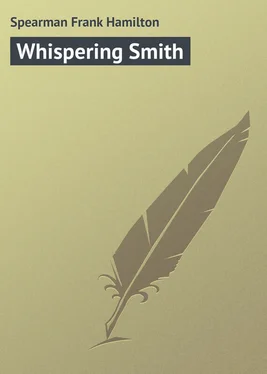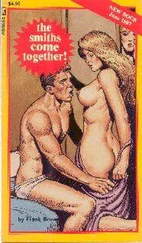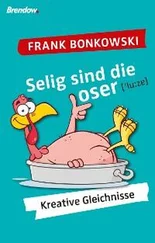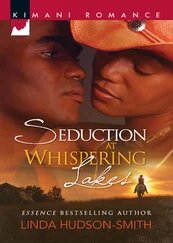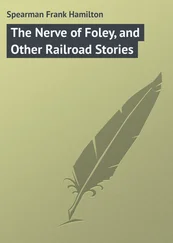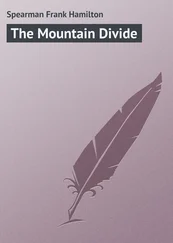Frank Spearman - Whispering Smith
Здесь есть возможность читать онлайн «Frank Spearman - Whispering Smith» — ознакомительный отрывок электронной книги совершенно бесплатно, а после прочтения отрывка купить полную версию. В некоторых случаях можно слушать аудио, скачать через торрент в формате fb2 и присутствует краткое содержание. Жанр: foreign_prose, foreign_adventure, на английском языке. Описание произведения, (предисловие) а так же отзывы посетителей доступны на портале библиотеки ЛибКат.
- Название:Whispering Smith
- Автор:
- Жанр:
- Год:неизвестен
- ISBN:нет данных
- Рейтинг книги:3 / 5. Голосов: 1
-
Избранное:Добавить в избранное
- Отзывы:
-
Ваша оценка:
- 60
- 1
- 2
- 3
- 4
- 5
Whispering Smith: краткое содержание, описание и аннотация
Предлагаем к чтению аннотацию, описание, краткое содержание или предисловие (зависит от того, что написал сам автор книги «Whispering Smith»). Если вы не нашли необходимую информацию о книге — напишите в комментариях, мы постараемся отыскать её.
Whispering Smith — читать онлайн ознакомительный отрывок
Ниже представлен текст книги, разбитый по страницам. Система сохранения места последней прочитанной страницы, позволяет с удобством читать онлайн бесплатно книгу «Whispering Smith», без необходимости каждый раз заново искать на чём Вы остановились. Поставьте закладку, и сможете в любой момент перейти на страницу, на которой закончили чтение.
Интервал:
Закладка:
“The doctor tells me that it is the latest treatment for that class of fevers in the Prussian army,” answered McCloud feebly, but getting interested in spite of himself.
“That’s a good thing, no doubt, for the Prussian army,” replied Bucks, “but, McCloud, in the first place, you are not a Dutchman; in the second, you have not got mountain fever–not in my judgment.”
McCloud, confident now that he had an insane man on his hands, held his peace.
“Not a symptom of mountain fever,” continued Bucks calmly; “you have what looks to me like gastritis, but the homeopaths,” he added, “have a better name for it. Is it stomatitis, McCloud? I forget.”
The sick man, confounded by such learning, determined to try one question, and, if he was at fault, to drag his gun from under his pillow and sell his life as dearly as possible. Summoning his waning strength, he looked hard at Bucks. “Just let me ask you one question. I never saw you before. Are you a doctor?”
“No, I’m a railroad man; my name is Bucks.” McCloud rose half up in bed with amazement. “They’ll kill you if you lie here a week,” continued Bucks. “In just a week. Now I’ll tell you my plan. I’ll take you down in the morning in my car to Medicine Bend; this barber will go with us. There in the hospital you can get everything you need, and I can make you comfortable. What do you say?”
McCloud looked at his benefactor solemnly, but if hope flickered for an instant in his eyes it soon died. Bucks said afterward that he looked like a cold-storage squab, just pinfeathers and legs. “Shave him clean,” said he, “and you could have counted his teeth through his cheeks.”
The sick man turned his face to the wall. “It’s kind enough,” he muttered, “but I guess it’s too late.”
Bucks did not speak for some time. Twilight had faded above the hills, and only the candle lighted the room. Then the master of mountain men, grizzled and brown, turned his eyes again to the bed. McCloud was staring at the ceiling.
“We have a town of your name down on the plains, McCloud,” said Bucks, blowing away the cigar smoke after the long silence. “It is one of our division points, and a good one.”
“I know the town,” responded McCloud. “It was named after one of our family.”
“I guess not.”
“It was, though,” said McCloud wearily.
“I think,” returned Bucks, “you must be mistaken. The man that town was named after belonged to the fighting McClouds.”
“That is my family.”
“Then where is your fight? When I propose to put you into my car and pull you out of this, why do you say it is too late? It is never too late.”
McCloud made no answer, and Bucks ran on: “For a man that worked out as well as you did yesterday in a trial heat with a billiard-cue, I should say you could turn a handspring or two yet if you had to. For that matter, if you don’t want to be moved, I can run a spur in here to your door in three hours in the morning. By taking out the side-wall we can back the car right up to the bed. Why not? Or we can stick a few hydraulic jacks under the sills, raise the house, and push your bed right on the observation platform.” He got McCloud to laughing, and lighted a fresh cigar. A framed photograph hung on one of the bare walls of the room, and it caught the eye of the railroad man. He walked close to it, disinfected it with smoke, brushed the dust from the glass, and examined the print. “That looks like old Van Dyne College campus, hanged if it doesn’t!”
McCloud was watching him. “It is a photograph of the campus.”
“McCloud, are you a Van Dyne man?”
“I did my college work there before I went to Boston.”
Bucks stood motionless. “Poor little old Van Dyne! Why, my brother Sam taught at Van Dyne. No, you would not have known him; he’s dead. Never before west of the Missouri River have I seen a Van Dyne man. You are the first.” He shook his head as he sat down again. “It is crowded out now: no money, no prestige, half-starved professors with their elbows out, the president working like a dog all the week and preaching somewhere every Sunday to earn five dollars. But, by Heaven, they turned out men! Did you know Bug Robinson?” he asked suddenly.
“He gave me my degree.”
“Old Bug! He was Sam’s closest friend, McCloud. It’s good to see him getting the recognition he deserves, isn’t it? Do you know, I send him an annual every year? Yes, sir! And one year I had the whole blooming faculty out here on a fossil expedition; but, by Heaven, McCloud, some of them looked more like megatheriums than what they dug up did.”
“I heard about that expedition.”
“I never got to college. I had to hustle. I’ll get out of here before I tire you. Wilcox will be here all night, and my China boy is making some broth for you now. You’ll feel better in the morning.”
Ten weeks later McCloud was sent from Medicine Bend up on the Short Line as trainmaster, and on the Short Line he learned railroading.
“That’s how I came here,” said George McCloud to Farrell Kennedy a long time afterward, at Medicine Bend. “I had shrivelled and starved three years out there in the desert. I lived with those cattle underground till I had forgotten my own people, my own name, my own face–and Bucks came along one day with Whispering Smith and dragged me out of my coffin. They had it ordered, and it being a small size and ‘onhandy,’ as the undertaker said, I paid for it and told him to store it for me. Well, do you think I ever could forget either of those men, Farrell?”
McCloud’s fortunes thus threw him first into the operating department of the mountain lines, but his heart was in the grades and the curves. To him the interest in the trainwork was the work of the locomotives toiling with the heavy loads up the canyons and across the uneven plateaus and through the deep gorges of the inner range, where the panting exhaust, choked between sheer granite walls, roared in a mighty protest against the burden put by the steep grades on the patient machines.
In all the group of young men then on the mountain division, obscure and unknown at the time, but destined within so few years to be scattered far and wide as constructionists with records made in the rebuilding operations through the Rocky Mountains, none was less likely to attract attention than McCloud. Bucks, who, indeed, could hardly be reckoned so much of the company as its head, was a man of commanding proportions physically. Like Glover, Bucks was a giant in stature, and the two men, when together, could nowhere escape notice; they looked, in a word, their part, fitted to cope with the tremendous undertakings that had fallen to their lot. Callahan, the chess-player on the Overland lines, the man who could hold large combinations of traffic movement constantly in his head and by intuition reach the result of a given problem before other men could work it out, was, like Morris Blood, the master of tonnage, of middle age. But McCloud, when he went to the mountain division, in youthfulness of features was boyish, and when he left he was still a boy, bronzed, but young of face in spite of a lifetime’s pressure and worry crowded into three years. He himself counted this physical make-up as a disadvantage. “It has embroiled me in no end of trouble, because I couldn’t convince men I was in earnest until I made good in some hard way,” he complained once to Whispering Smith. “I never could acquire even a successful habit of swearing, so I had to learn to fight.”
When, one day in Boney Street in Medicine Bend, he threw open the door of Marion Sinclair’s shop, flung his hat sailing along the showcase with his war-cry, and called to her in the back rooms, she thought he had merely run in to say he was in town.
Читать дальшеИнтервал:
Закладка:
Похожие книги на «Whispering Smith»
Представляем Вашему вниманию похожие книги на «Whispering Smith» списком для выбора. Мы отобрали схожую по названию и смыслу литературу в надежде предоставить читателям больше вариантов отыскать новые, интересные, ещё непрочитанные произведения.
Обсуждение, отзывы о книге «Whispering Smith» и просто собственные мнения читателей. Оставьте ваши комментарии, напишите, что Вы думаете о произведении, его смысле или главных героях. Укажите что конкретно понравилось, а что нет, и почему Вы так считаете.
